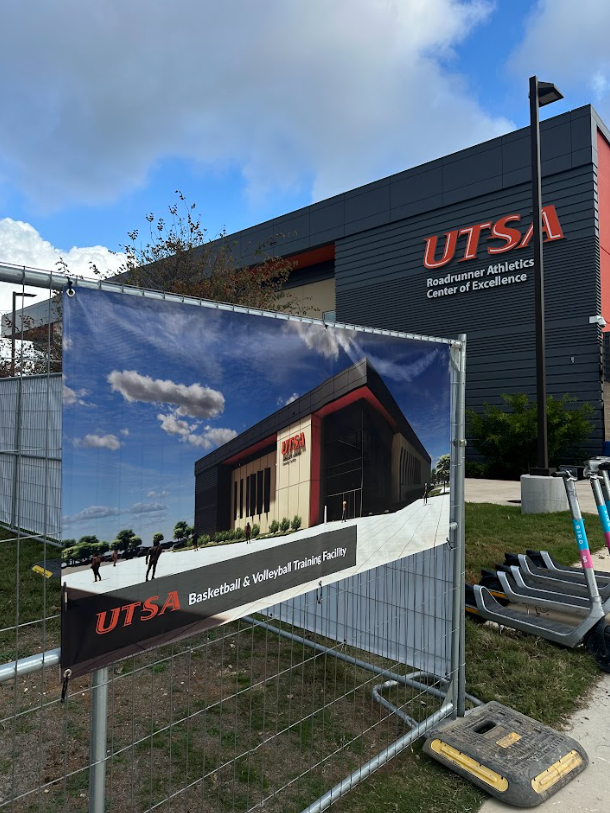

September 11, 2001 not only dashed the dreams of many Americans, but of many Mexicans as well.
Prior to September 11, former president of Mexico, Vicente Fox, and former President George W. Bush were working together on immigration reform. However, after September 11, Bush changed his immigration policies and essentially moved to close the borders completely.
Fox discussed the consequences of closing the borders in his keynote address during the Hispanic Leadership Conference sponsored by The Congressional Hispanic Leadership Institute (CHLI). The conference was held at UTSA and was sponsored by the College of Business.
“Back in 2000, Bush and I committed that we would accomplish immigration reform, but also speed up integration,” Fox said. “I never understood why that vision, that dream we put together, was frozen.”
Conference speakers and panelists included Fox; Texas Secretary of State Esperanza “Hope” Andrade; Congressman Henry Cuellar (TX-28); and Dr. Ricardo Romo, president of UTSA; and many other prominent national and local Hispanic leaders.
The theme of the event was “The Emerging Role of Young Hispanic Leaders in US-Mexico Relations.” During his speech, Fox stressed the importance of maintaining and improving relations between the United States and Mexico through Hispanic leadership.
Fox would like to see the US, Mexico and Canada transform their borders to be more open to enhance free-trade and develop a European Union (EU)-like economy. The countries in the EU give a percentage of their gross domestic product to a solidarity fund designed to provide aid to participating countries.
Fox requested that the US and Mexico create a similar solidarity fund, but Bush told Fox that there was no way he could get Congress to approve any kind of monetary support for immigration reform, despite Congress’s approval to build a tall wall along the US/Mexico border.
“I’m for orderly immigration,” Fox said. “(The US) needs the flow of workers (from Mexico) to compete with Asia. If this nation closes its borders, it will lose out on many talented people. My vision is to speed up the process of integration by using the example of the EU.”
Fox said that the relationship between the US and Mexico is very diverse. Nevertheless, for a long time we’ve been building this relationship, and today we can say we are friends, neighbors and partners that decided to work to build a future of understanding and economic growth.
Romo said that having a dignitary like Fox is an honor and that students visit UTSA can learn from him.
“I hope our students see the importance of building a relationship with Mexico, not only with the US and Mexico, but with Texas and Mexico. I hope they see that the way we can improve our position, the way we can improve our interaction with businesses, is by being bilingual, and that you’ve got to learn Spanish if you’re going to learn the ways of doing business in Mexico in the same way that we expect the Mexicans that come here to learn English,” Romo said.
Fox said that there is a leader inside of every person, and in order to solve the problems with the economy and at the border, every individual needs to discover the leader within. However, current national leaders need to create an environment where leadership values take top priority.
“There is no better way to develop our capacities, to develop our growth, than when the human being is ready to give its best, which is in situations of peace, harmony and under the rule of law. Those scenarios are built by leaders who promote freedom, innovation and creativity,” Fox said.
Fox blamed the development discrepancies between the US and Mexico on bad leadership policies prevalent throughout Latin America during the twentieth century. Fox compared the two countries, saying that although both the US and Mexico have natural resources, sources of energy, and cultural values founded on a rich heritage, there are differences in wealth and development.
“Both nations share the same American dream, the dream of the Americas, of equal opportunities, and yet we have this huge difference, mainly in income,” Fox said.
“In the 20th century, most of the nations in Latin America spent our time in the hands of dictators. The end result was that we did not enjoy freedom. We were not led by democratic values, and this inhibited our progress,” Fox said.
“There should always be the capacity in leaders to fight for ideals. Hope is an act of renewal. We should not be misguided by plans and talk. We need action. I hope President Obama is going to be serious and will really commit to (integration),” Fox said.
Finance major Gabriel Gonzales agrees with Fox that expanding trade relations with Mexico can only work to benefit both countries.
“I enjoyed his insight on trade agreements,” Gonzales said. “I look forward to what the future holds, and hope that the US and Mexico can make the positive agreements we need in order to make progress together.”
Although Fox said he understands why Mexican citizens would want to immigrate to the US, he also emphasized that there are many opportunities in Mexico, despite a wage discrepancy between the two countries.
Fox’s own family immigrated from the US to Mexico.
Business major Gabriel Salas found this reversal refreshing.
“Everyone looks at people who immigrate from Mexico to the US,” Salas said. “The fact that it’s possible to have a successful company in Mexico is often overlooked.”
The free CHLI conference was the fourth of its kind in promoting Hispanic leadership and encouraging positive border relations.
Dr. Lynda de la Vina, dean of the college of business, said the college of business is pleased to host the Future Leaders Conference.
“We are pleased to partner with CHLI to provide this wonderful opportunity for UTSA student leaders and other local college students to explore US-Mexico relations,” de la Vina said.






